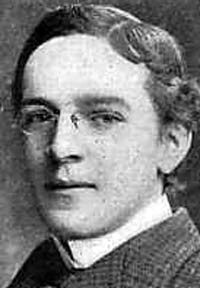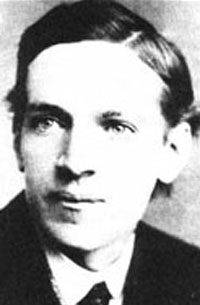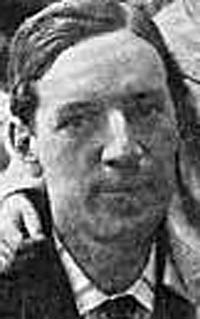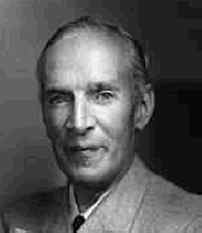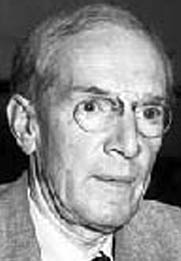Upton Sinclair
Copyright Michael D. Robbins 2005
Astro-Rayological
Interpretation & Charts
Quotes
Biography
Iimages and Physiognomic Interpretations
Upton Sinclair—Writer and Social Critic
September 20, 1878, Baltimore, Maryland, 9:00 AM, LMT (Source: Constellations, 1977, Lockhart quotes AFA data exchange, “from him”. Same in Sabian Symbols, #845) Died, November, 15, 1968, Bound Brook, New Jersey, USA.
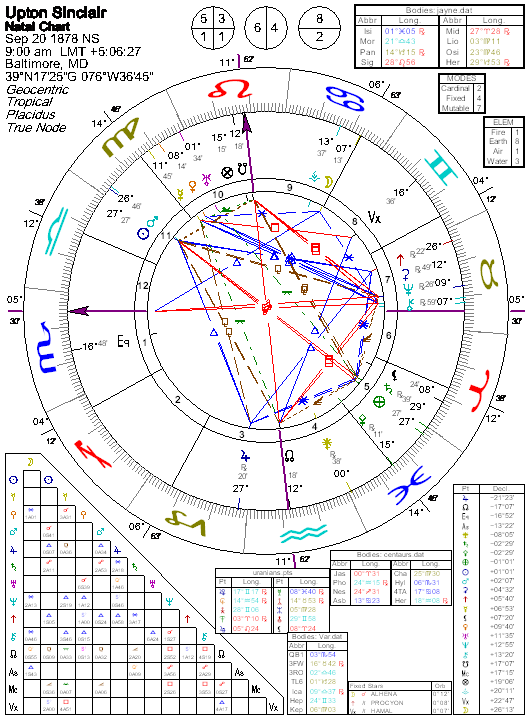
(Ascendant, Scorpio; MC, Leo; Sun conjunct Mars in Virgo, H11; Mercury conjunct Venus in Virgo; Uranus widely conjunct Venus in Virgo; Moon in Cancer; Jupiter in Capricorn; Saturn in Pisces; Neptune in Taurus conjunct DSC)
American writer who tried to expose the evils in various industries; author of ninety books. Won the Pulitzer Prize for Dragon’s Teeth (1943). Ran unsuccessfully for public office as a socialist and as candidate for California governor in 1934).
A socialist, Sinclair exposed the evils in many industries to his often horrified readers, including The Jungle (1906), a novel exposing meat-packing conditions in Chicago.
Fascism is capitalism plus murder.
In the twilight, it was a vision of power.
It is difficult to get a man to understand something when his salary depends upon his not understanding it.
(Scorpio Ascendant)I just put on what the lady says. I’ve been married three times, so I’ve had lots of supervision.
“The private control of credit is the modern form of slavery” quote
(About his book Chophouse on the American meat industry.)
I aimed for the public's heart, ... and by accident I hit it in the stomach.”“Consider Christmas—could Satan in his most malignant mood have devised a worse combination of graft plus bunkum than the system whereby several hundred million people get a billion or so gifts for which they have no use, and some thousands of shop clerks die of exhaustion while selling them, and every other child in the Western world is made ill from overeating—all in the name of the lowly Jesus?”
""Man is an evasive beast, given to cultivating strange notions about himself. He is humiliated by his simian ancestry, and tries to deny his animal nature, to persuade himself that he is not limited by its weaknesses nor concerned in its fate. And this impulse may be harmless, when it is genuine. But what are we to say when we see the formulas of heroic self-deception made use of by unheroic self-indulgence?"
- Upton Sinclair, "Profits of Religion""You don't have to be satisfied with America as you find it. You can change it. I didn't like the way I found America some sixty years ago, and I've been trying to change it ever since."
(Uranus in 10th house)There is one kind of prison where the man is behind bars, and everything that he desires is outside; and there is another kind where the things are behind the bars, and the man is outside. The Jungle
"So from the top to bottom the place is simply a seething cauldron of jealousies and hatreds; there is no loyalty or decency anywhere about it, there is no place in it where a man counted for anything against a dollar." Chapter 5, pg. 70
The Jungle"And, for this, at the end of the week, he will carry home three dollars to his family, being his pay at the rate of five cents per hour-just about his proper share of the million and three quarters of children who are now engaged in earning their livings in the United States." Chapter 6, pg. 85
The Jungle(1) In American Outpost, Upton Sinclair explained the writing of his first successful novel, The Jungle.
I wrote with tears and anguish, pouring into the pages all that pain which life had meant to me. Externally the story had to do with a family of stockyard workers, but internally it was the story of my own family. Did I wish to know how the poor suffered in winter time in Chicago? I only had to recall the previous winter in the cabin, when we had only cotton blankets, and had rags on top of us. It was the same with hunger, with illness, with fear. Our little boy was down with pneumonia that winter, and nearly died, and the grief of that went into the book.
(Cancer Moon)I know you are brave and unselfish people, making sacrifices for a great principle but I cannot join you. I believe in the present effort which the allies are making to suppress German militarism. I would approve of America going to their assistance. I would enlist to that end, if ever there be a situation where I believe I could do more with my hands than I could with my pen.
(Mars conjunct Sun, trine Pluto)(9) Upton Sinclair, letter to the Los Angeles Police Chief (7th April, 1928)
I am not a giant physically; I shrink from pain and filth and vermin and foul air, like any other man of refinement; also, I freely admit that when I see a line of a hundred policeman with drawn revolvers flung across a street to keep anyone from coming on to private property to hear my feeble voice. But I have a conscience and a religious faith, and I know that our liberties were not won without suffering, and may be lost again through our cowardice.
(Virgo Sun. Cancer Moon. Mars conjunct Sun. Neptune conjunct Chiron.)
Upton Sinclair
Upton Beall Sinclair Jr.Born: 20 September 1878
Baltimore, Maryland
Died: 25 November 1968
Bound Brook, New Jersey
Occupation: Novelist, writer, journalist, political activist
Nationality: AmericanUpton Beall Sinclair Jr. (September 20, 1878 – November 25, 1968) , was a prolific American author who wrote over 90 books in many genres and was widely considered one of the best investigative journalists of his era. Often advocating socialist views, he achieved considerable popularity in the first half of the Twentieth Century. He gained particular fame for his novel, The Jungle (1906), which dealt with conditions in the U.S. meat packing industry and caused a public uproar that partly contributed to the passage of the Pure Food and Drug Act and the Meat Inspection Act in 1906.
Biographywas born on September 20th, 1878 in Baltimore, Maryland and later moved to New York City. Upton married his first wife, Molly King in 1900.
An early success was the Civil War novel Manassas, written in 1903 and published a year later. Originally projected as the opening book of a trilogy, the success of The Jungle caused him to drop his plans, although he did revise Manassas decades later by "moderating some of the exuberance of the earlier version" [citation needed]. The Jungle brought to light many major issues in America such as poverty and other social wrongs.
Sinclair established a socialist commune called Helicon Hall Colony in 1906 with proceeds from his novel The Jungle. One of those who joined was the novelist and playwright Sinclair Lewis, who worked there as a janitor.
's The JungleSinclair made several bids for national office. His first was in 1906, the Socialist Party of America sponsored his candidacy for Congress in New Jersey. He lost with just over 3% of the votes.[1] [2]
The colony burned down in 1907, apparently from arson. After the famed fire of Helicon Hall, he moved to Arden, Delaware where many Georgist, Socialist, and Communist "Free Thinkers" lived including Mother Bloor's son Hamilton "Buzz" Ware. Some say that he worked in a tree house behind his home during these years.
Around 1911, Sinclair's wife ran off with the poet Harry Kemp (later known as the Dunes Poet of Provincetown, Massachusetts). Within a few years, Sinclair moved to Pasadena, California, where he founded the state's chapter of the American Civil Liberties Union in the 1920s. Sinclair went on to run unsuccessfully for Congress twice on the Socialist ticket: in 1920 for the House of Representatives, and in 1922 for the Senate.[3]
Sinclair's 1928 book Boston created controversy by proclaiming the innocence of Nicola Sacco and Bartolomeo Vanzetti, anarchists who were accused of a murder-robbery in that city. Sinclair faced what he would later call "the most difficult ethical problem of my life," when he was told in confidence by Sacco and Vanzetti's former attorney Fred Moore that they were guilty and how their alibis were supposedly arranged.[4] However, in the letter revealing that discussion with Moore, Sinclair also wrote, "I had heard that Moore was using drugs. I knew that he had parted from the defense committee after the bitterest of quarrels … Moore admitted to me that the men themselves had never admitted their guilt to him." Although the two men were ultimately executed, this episode has been used by some to claim that Sacco and Vanzetti were guilty and that Sinclair knew that when he wrote his novel. However, this account has been disputed by Sinclair biographer Greg Mitchell.
In 1934 Sinclair made his most successful run for office, this time as a Democrat. Sinclair's platform for the California gubernatorial race of 1934, known as EPIC (End Poverty in California), galvanized the support of the Democratic Party, and Sinclair gained its nomination. Conservatives in California were themselves galvanized by this, as they saw it as an attempted Communist takeover of their state and used massive political propaganda portraying Sinclair as a Communist, even as he was being portrayed by American and Soviet Communists as a capitalist following the Que Viva Mexico! debacle. Robert A. Heinlein, the science fiction author, was deeply involved in Sinclair's campaign, a point which Heinlein tried to obscure from later biographies, as Heinlein tried to keep his personal politics separate from his public image as an author.[citation needed]
Sinclair was defeated by Frank F. Merriam in the election and largely abandoned EPIC and politics to return to writing. However, the race of 1934 would become known as the first race to use modern campaign techniques like motion pictures.
Of his gubernatorial bids, Sinclair remarked in 1951: "The American People will take Socialism, but they won't take the label. I certainly proved it in the case of EPIC. Running on the Socialist ticket I got 60,000 votes, and running on the slogan to 'End Poverty in California' I got 879,000. I think we simply have to recognize the fact that our enemies have succeeded in spreading the Big Lie. There is no use attacking it by a front attack, it is much better to out-flank them."[5]
Sinclair was married two more times. Later in his life, he moved to Buckeye, Arizona, before moving to Bound Brook, New Jersey near the end of his life.
He took an interest in psychic phenomena and experimented with telepathy, writing a book titled Mental Radio, published in 1930.
His papers, photographs, and first editions of most of his books are found at the Lilly Library, Indiana University, Bloomington, Indiana.
Political and social activism
"It is difficult to get a man to understand something when his salary depends upon his not understanding it."Sinclair believed that the main point of The Jungle was lost on the public, overshadowed by his descriptions of the unhealthy conditions in packing plants. The public health concerns dealt with in The Jungle are actually far less significant than the human tragedy lived by his main character and other workers in the plants. His main goal for the book was to demonstrate the inhumane conditions of the wage earner under capitalism, not to inspire public health reforms in how the packing was done. Indeed, Sinclair lamented the effect of his book and the public uproar that resulted: "I aimed at the public's heart, and by accident I hit it in the stomach." [1] Still, the fame and fortune he gained from publishing The Jungle enabled him to write books on almost every issue of social injustice in the Twentieth Century.Sinclair is well-known for his principle: "It is difficult to get a man to understand something when his salary depends on his not understanding it." which has been quoted in many political books, essays, articles, and other forms of media.
Upton Sinclair was born in Baltimore on 20th September, 1878. His alcoholic father moved the family to New York City in 1888. Although his own family were extremely poor, he spent periods of time living with his wealthy grandparents. He later argued that witnessing these extremes turned him into a socialist.
A religious boy with a great love of literature, his two great heroes were Jesus Christ and Percy Bysshe Shelley. An intelligent boy he did well at school and at 14 entered New York City College. Soon afterwards he had his first story published in a national magazine. Over the next few years Sinclair funded his college education by writing stories for newspapers and magazines. By the age of 17 Sinclair was earning enough money to enable him to move into his own apartment while supplying his parents with a regular income.
Sinclair's first novel, Springtime and Harvest, was published in 1901. He followed this with The Journal of Arthur Stirling (1903), Prince Hagen (1903) Manassas (1904) and A Captain of Industry (1906), but they all sold badly.
In the early 1900s Sinclair became an active socialist after reading books such as Merrie England (Robert Blatchford), The People of the Abyss (Jack London), Appeal to the Young (Peter Kropotkin) and Octypus (Frank Norris). In September 1905, Sinclair joined with Jack London, Clarence Darrow and Florence Kelley to form the Intercollegiate Socialist Society.
The work of Frank Norris was especially important to the development of Sinclair as a writer. He later spoke about how Norris had "showed me a new world, and he also showed me that it could be put in a novel." Sinclair was also influenced by the investigative journalism of Benjamin Flower, Ida Tarbell, Lincoln Steffens and Ray Stannard Baker.
In 1904 Fred Warren, the editor of the socialist journal, Appeal to Reason, commissioned Sinclair to write a novel about immigrant workers in the Chicago meat packing houses. Julius Wayland, the owner of the journal provided Sinclair with a $500 advance and after seven weeks research he wrote the novel, The Jungle. Serialized in 1905, the book helped to increase circulation to 175,000.
However, Sinclair had his novel rejected by six publishers. A consultant at Macmillan wrote: "I advise without hesitation and unreservedly against the publication of this book which is gloom and horror unrelieved. One feels that what is at the bottom of his fierceness is not nearly so much desire to help the poor as hatred of the rich."
Sinclair decided to publish the book himself and after advertising his intentions in the Appeal to Reason, he he got orders for 972 copies. When he told Doubleday of these orders, it decided to publish the book. The Jungle (1906) was an immediate success selling over 150,000 copies. Within the next few years The Jungle had been published in seventeen languages and was a best-seller all over the world.
After President Theodore Roosevelt read The Jungle and ordered an investigation of the meat-packing industry. He also met Sinclair and told him that while he disapproved of the way the book preached socialism he agreed that "radical action must be taken to do away with the efforts of arrogant and selfish greed on the part of the capitalist."
With the passing of the Pure Food and Drugs Act (1906) and the Meat Inspection Act (1906), Sinclair was able to show that novelists could help change the law. This in itself inspired a tremendous growth in investigative journalism. Theodore Roosevelt became concerned at this development and described it as muckraking.
Sinclair was now a well-known national figure and decided to accept the offer of the Socialist Party to become its candidate for Congress in New Jersey. The venture was unsuccessful with Sinclair winning only 750 out of 24,000 votes.
In 1906 Sinclair decided to use some of his Jungle royalties into establishing, Helicon Home Colony, a socialist community at Eaglewood, New Jersey. One of those who joined was Sinclair Lewis, who was to be greatly influenced by Sinclair Upton's views on politics and literature. Four months after it opened, a fire entirely destroyed Helicon. Later, Sinclair blamed his political opponents for the fire.
Sinclair's next few novels such as The Overman (1907), The Metropolis (1908), The Moneychangers (1908), Love's Pilgrimage (1911) and Sylvia (1913) were commercially unsuccessful.
In 1914 Sinclair moved to Croton-on-Hudson, a small town close to New York City where there was a substantial community of radicals living including Max Eastman, Floyd Dell, Robert Minor, Boardman Robinson and Inez Milholland. He also pleased his socialist friends with his anthology of social protest, The Cry for Justice (1915). John Reed wrote to Sinclair that his "anthology has made more radicals than anything I ever heard of".
Initially, members of the Socialist Party had argued that the First World War had been caused by the imperialist competitive system and were opposed to the United States becoming involved in the conflict. However, news of the atrocities carried out by German soldiers in Belgium convinced some members that the United States should join the Allies against the Central Powers.
Sinclair took this view and began arguing this case in the radical journal, The Masses. Its editor, Max Eastman and John Reed, who had been to the Western Front and Eastern Front as a war reporter, disagreed and argued against him in the journal. The issue split the Socialist Party and eventually Sinclair resigned from the party over it.
After the USA declared war on the Central Powers in 1917 the Espionage Act was passed and this resulted in several of Sinclair's socialist opponents, being imprisoned for their opposition to the war. Sinclair now took up their case and when Eugene Debs, was imprisoned Sinclair wrote to Woodrow Wilson arguing that it was "futile to try and win democracy abroad, while we are losing it at home."
Sinclair continued to write political committed novels including King Coal (1917) based on an industrial dispute and Boston (1928) on the Sacco-Vanzetti Case. He also wrote books about religion (The Profits of Religion, 1918), newspapers (The Brass Check, 1919) and education (The Goose-Step, 1923 and The Goslings, 1924).
Sinclair rejoined the Socialist Party and in 1926 was its candidate to become governor of California. The following year he wrote an article for The Nation where he admitted he had been wrong about the First World War.
In 1934 Sinclair once again stood as a candidate to become governor of California. He lost, but his EPIC program (End Poverty in California) gained considerable support and this time he won 879,537 votes against the winner's 1,138,620.
In 1940 World's End launched Sinclair's 11 volume novel series on American government. His novel Dragon's Teeth (1942) on the rise of Nazism won him the Pulitzer Prize. By the time Upton Sinclair died in November, 1968, he had published more than ninety books.
